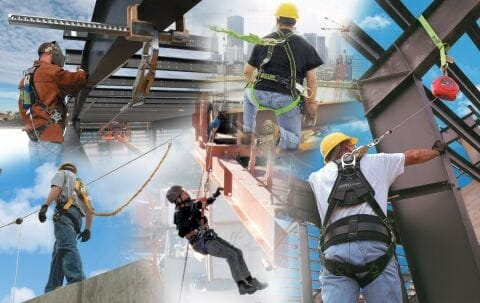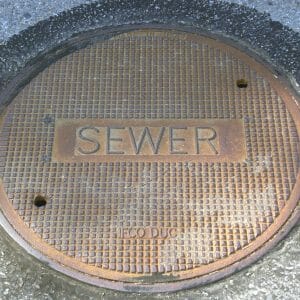E – 1387 Fall Prevention Guide in Industry
$150.00
Courses Included
This course is based on the EPA publication, A Guide to Fall Prevention in Industry which is intended to be consistent with all OSHA standards. If the reader considers this publication to be inconsistent with any OSHA standard, then the OSHA standard should be followed. This manual stresses the importance of preparation and education in preventing and reducing the risk of falls in industrial settings.
Each year, falls in industrial areas result in hundreds of fatalities. In recent years the Census of Fatal Occupational Injuries has measured a trend. While fatal falls from roofs and tall ladders have gradually decreased, fatal falls to the same level and falls to the floor from the same level have increased. This course will introduce the basic principles of fall protection from all heights, with emphasis on falls from low heights. The seriousness of injury is not always proportional to the height from which the worker falls. The reader will gain a better understanding of fall hazards and fall prevention.
Nearly all falls result from conditions or practices that seem obvious; however, preventing such accidents requires maintaining safe conditions in the workplace and training to ensure safe actions by employees.
This course demonstrates the basic elements of fall prevention. Educating workers and employers on fall prevention can reduce the number of injuries and fatalities resulting from falls.
Description
This course is based on the EPA publication, A Guide to Fall Prevention in Industry which is intended to be consistent with all OSHA standards. If the reader considers this publication to be inconsistent with any OSHA standard, then the OSHA standard should be followed. This manual stresses the importance of preparation and education in preventing and reducing the risk of falls in industrial settings.
Each year, falls in industrial areas result in hundreds of fatalities. In recent years the Census of Fatal Occupational Injuries has measured a trend. While fatal falls from roofs and tall ladders have gradually decreased, fatal falls to the same level and falls to the floor from the same level have increased. This course will introduce the basic principles of fall protection from all heights, with emphasis on falls from low heights. The seriousness of injury is not always proportional to the height from which the worker falls. The reader will gain a better understanding of fall hazards and fall prevention.
Nearly all falls result from conditions or practices that seem obvious; however, preventing such accidents requires maintaining safe conditions in the workplace and training to ensure safe actions by employees.
This course demonstrates the basic elements of fall prevention. Educating workers and employers on fall prevention can reduce the number of injuries and fatalities resulting from falls.
- Recognition of Fall Conditions Unique to Industry
- Falls from Elevated Surfaces
- Falls from Ladders
- Falls to Floor from Same Level
- Falls in Stairways
- Falls into Holes
- Falls on Slippery Floors
- The Affects of Lighting Conditions
- The Affects of Irregular Stairs and Rails
- Unsafe Ladders
- The Affects of Shoes on Falls
- The Affects of Floor Surfaces on Falls
- The Affects of House Keeping on Falls
- The Affects of Roof Slopes
- Fall Arrest Systems
- Safety Nets
- Guard Rails
- Protecting Skylights
- Falling Objects
- A Brief Introduction to Related OSHA Regulations






